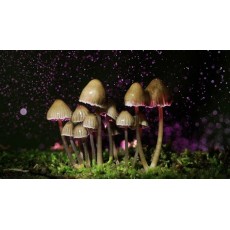
The power of psilocybin (a main component in magic mushrooms) as medicine is being slowly realised by medical and research professionals around the world. It has been long understood that affecting the conscious state through psychedelics can have a profound effect on those who are suffering from illnesses or coming to the end of their lives, but researchers are suggesting that magic mushrooms possess a broader multitude of medicinal qualities.
Dr. David A. Nichols PHD, a co-founder at the Heffer Research Institute, yesterday published his research, the conclusion of multiple studies, that magic mushrooms and hallucinogens have outstanding therapeutic qualities. This is something that has been constantly researched since the beginning of the last century, and Dr. Nichols is now pushing for legalisation of medicinal psilocybin. In particular, its ability to treat severe anxiety, PTSD, OCD, substance addiction, and even the power to regrow brain cells.
At an earlier study by the Imperial College of London, the effect of psilocybin mimicked the flow of serotonin to the brain, slowing cognitive function and relieving stress; researchers believe it could be used to treat severe depression.
Dr. Nichols has called the current scientific era a ‘renaissance’ of psychedelic drug research. At this stage, not only is our understanding growing of how compounds in magic mushrooms and LSD work, but their medical applications are becoming more apparent with each new study conducted. “The remarkable piece is that psilocybin can facilitate experiences that change how people perceive themselves and their environment” said Roland Griffiths, a professor of psychiatry and behavioural sciences at Johns Hopkins University of Medicine in Baltimore.
“That’s unprecedented.” he concluded.
